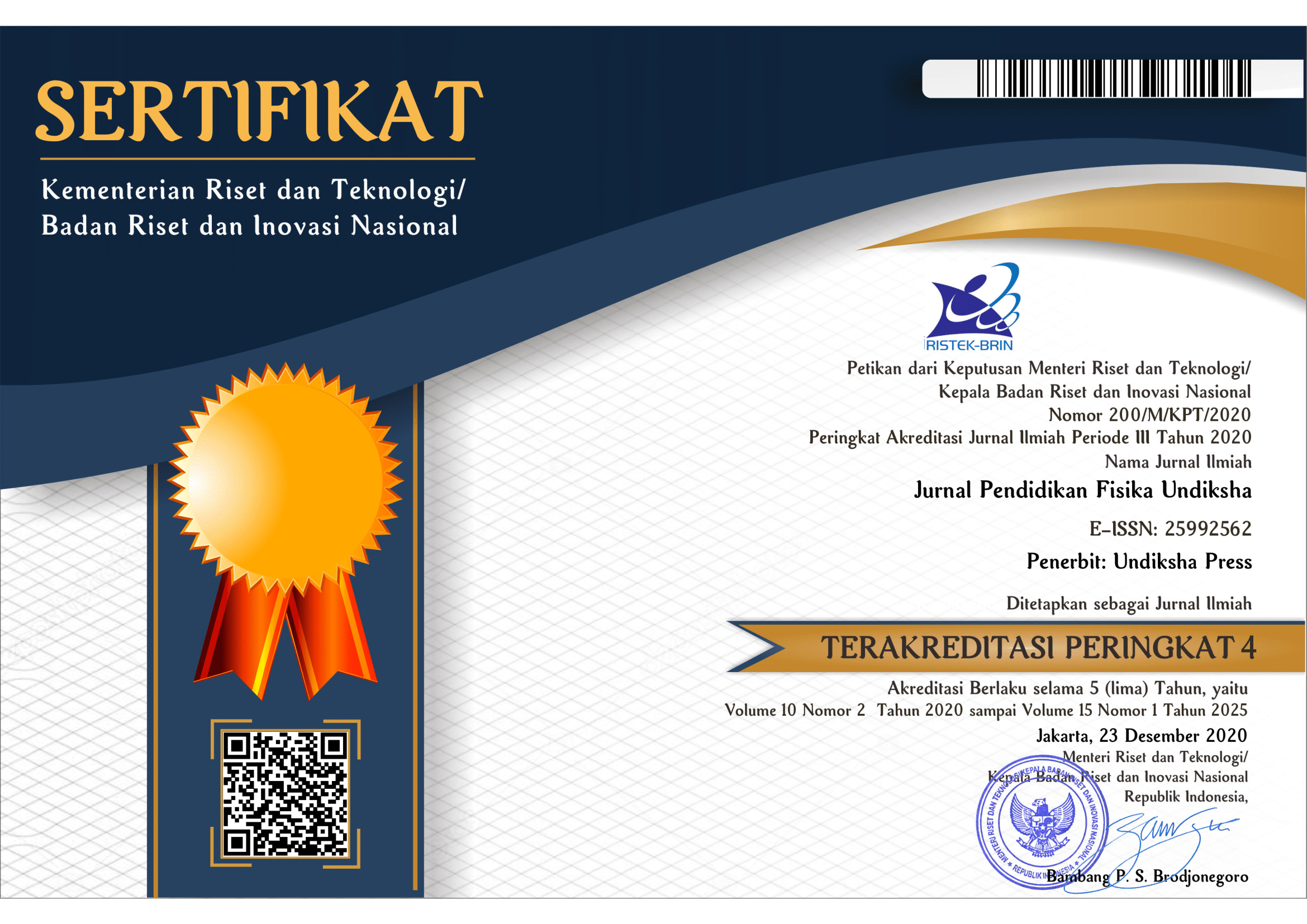Pengaruh Minat Belajar dan Kebiasaan Belajar terhadap Hasil Belajar Fisika Siswa SMA
DOI:
https://doi.org/10.23887/jjpf.v2i1.5452Abstract
Rendahnya hasil belajar disebabkan oleh beberapa faktor, diantaranya: minat dan kebiasaan belajar. Tujuan penelitian ini adalah (1) menganalisis pengaruh minat belajar terhadap hasil belajar fisika, (2) menganalisis pengaruh kebiasaan belajar terhadap hasil belajar fisika, dan (3) menganalisis pengaruh minat dan kebiasaan belajar terhadap hasil belajar fisika. Jenis penelitian ini adalah kausal komparatif atau ex post facto. Populasi penelitian ini adalah seluruh siswa kelas X IPA di SMA Negeri 8 Denpasar dengan jumlah sampel sebanyak 150 siswa dan diambil dengan teknik simple random sampling. Data penelitian diperoleh menggunakan instrumen dan diolah dengan teknik analisis deskriptif, teknik analisis regresi linier sederhana, dan teknik analisis regresi ganda dua prediktor. Hasil penelitian menunjukkan (1) terdapat pengaruh signifikan minat belajar terhadap hasil belajar fisika (F = 6,407, p<0,05), (2) terdapat pengaruh signifikan kebiasaan belajar terhadap hasil belajar fisika (F = 22,289, p<0,05), dan (3) terdapat pengaruh signifikan minat belajar dan kebiasaan belajar terhadap hasil belajar fisika (F = 11,189, p<0,05).Kata Kunci : Minat Belajar, Kebiasaan Belajar, Hasil Belajar Fisika
The low of learning outcomes are caused by several factors, including: interest and study habits. Purpose of this study were (1) to analyze the impact of learning interest toward physics learning outcomes, (2) to analyze the impact of study habits toward physics learning outcomes, and (3) to analyze the impact of learning interest and study habits toward physics learning outcomes. This study was a causal-comparative or ex post facto research. Population of this study was 150 of 10th grade students of SMA Negeri 8 Denpasar which was taken by simple random sampling technique. Data of this research were obtained by instrument and analyzed by descriptive analysis techniques, simple linier regression, and multiple regression analysis two predictors. The result of this study shows that (1) there is a significant impact between learning interest toward physics learning outcomes (F = 6,407, p<0,05), (2) there is a significant impact between study habits toward physics learning outcomes (F = 22,289, p<0,05), and (3) there is a significant impact between learning interest and study habits toward physics learning outcomes (F = 11,189, p<0,05).
keyword : learning interest, study habits, physics learning outcomes
Published
2015-07-27
Issue
Section
Articles
License

Jurnal Pendidikan Fisika Undiksha is licensed under a Creative Commons Attribution-ShareAlike 4.0 International License.






